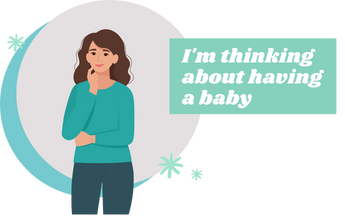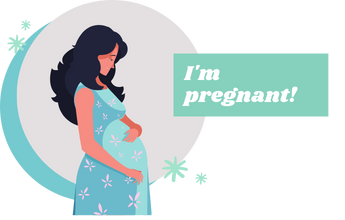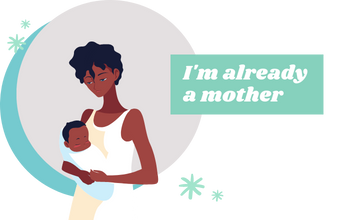I’m not thinking about getting pregnant
Even if you don’t plan to get pregnant any time soon, it’s vital to understand:
- how your epilepsy medication could interact with your contraception and stop it from working
- the dangers either medications or seizures could cause if you got pregnant without intending to

Epilepsy and contraception
What do I need to know about epilepsy and contraception (or birth control)?
Women with epilepsy have many choices of contraception for effective birth control. Hormone-based oral contraceptives (‘the pill’) are used most often to prevent pregnancy. These usually contain forms of both oestrogen and progesterone, and are often called “combination pills”.
Oral contraceptives generally prevent pregnancy in two ways:
- The oestrogen stops ovulation (release of the egg during the menstrual cycle)
- The progesterone produces a thick cervical mucus that interferes with the movement of sperm and its ability to fertilise the egg. It also changes the lining of the uterus making it difficult for a fertilised egg to implant. (Some contraceptives only contain progesterone.)
How ASMs interact with the pill
Some anti-seizure medications (ASMs) can increase the risk your contraceptive failing. These are the enzyme-inducing ASMs, which can affect how the liver breaks down hormones. The result can be an unintended pregnancy.
Other types of birth control deliver hormones in different ways, usually over a longer period. These include:
- Patches
- Injections
- Implants
- Other options.

Epilepsy and valproate
What is valproate and why is it a risk for pregnant women?
Valproate is an ASM used to treat epilepsy and bipolar disorder. It can be very effective in controlling seizures, but if a woman with epilepsy becomes pregnant while taking it, their baby is at risk of serious birth defects and developmental disorders.
In 30-40% of cases, the child will have serious developmental disorders. And in 10% of cases, the child will have congenital malformations. Not only that, but this damage can happen before you even realise you are pregnant.
While valproate is not suitable for women of childbearing age who could become pregnant, in some instances it may be the only choice where other treatment options have not worked.
How do I manage the risks of valproate?
If you take an ASM that contains valproate, you must use contraception, even if you are not currently sexually active, unless your doctor believes there are compelling reasons for assuming no risk of pregnancy.
If you’re taking valproate and become pregnant, don’t stop taking your medicine without talking to your doctor first. This is so your symptoms don’t get worse.
Irregular periods and breakthrough bleeds
Does it matter that my periods aren’t regular?
If you have an irregular menstrual cycle, it makes taking hormonal birth control more complicated, as your hormones are out of balance in some way. Your doctor needs to know if your periods are irregular so they can help you choose the most suitable contraception.
You may have to consult an endocrinologist, a doctor who specialises in diagnosing and treating hormonal problems.
Are there any warning signals if my contraception is not working?
Breakthrough bleeding while you’re on hormonal contraception, for example during the middle of your cycle, could be a sign you’re ovulating and may become pregnant.
If you use birth control pills, bleeding at any other time than when you switch from the active to the inactive pills may be a sign the pills aren’t working. If you have bleeding, talk with your doctor to agree extra contraception such as:
- a diaphragm
- spermicidal vaginal cream
- condoms
Accidental or unplanned pregnancy
What if I get pregnant by accident?
- Don’t suddenly stop taking your ASMs.
- Make sure you get medical advice before making any changes to medications prescribed for you.
Abruptly stopping ASMs can cause your seizures to come back. They could also be stronger than seizures you had in the past, and women in this situation can sometimes find it difficult to regain seizure control.
Remember – the risks of seizures include the risk of a sudden unexpected death in epilepsy. Stopping your ASMs suddenly also puts you at risk of a life-threatening condition known as status epilepticus.
If you decide in future, you want to get pregnant, you need to plan at least a year ahead so your medications can be adjusted in plenty of time.











